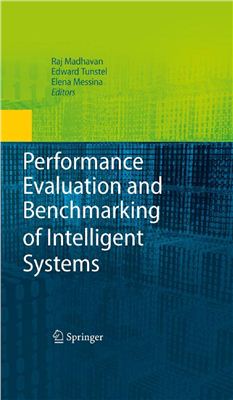Springer – 2009, 351 pages
ISBN 9781441904911
Performance Evaluation and Benchmarking of Intelligent Systems presents research dedicated to the subject of performance evaluation and benchmarking of intelligent systems by drawing from the experiences and insights of leading experts gained both through theoretical development and practical implementation of intelligent systems in a variety of diverse application domains. This contributed volume offers a detailed and coherent picture of state-of-the-art, recent developments, and further research areas in intelligent systems.
The chapters cover a broad range of applications, such as assistive robotics, planetary surveying, urban search and rescue, and line tracking for automotive assembly. Subsystems or components described in this book include human-robot interaction, multi-robot coordination, communications, perception, and mapping. Chapters are also devoted to simulation support and open source software for cognitive platforms, providing examples of the type of enabling underlying technologies that can help intelligent systems to propagate and increase in capabilities.
Performance Evaluation and Benchmarking of Intelligent Systems serves as a professional reference for researchers and practitioners in the field. This book is also applicable to advanced courses for graduate level students and robotics professionals in a wide range of engineering and related disciplines including computer science, automotive, healthcare, manufacturing, and service robotics.
ISBN 9781441904911
Performance Evaluation and Benchmarking of Intelligent Systems presents research dedicated to the subject of performance evaluation and benchmarking of intelligent systems by drawing from the experiences and insights of leading experts gained both through theoretical development and practical implementation of intelligent systems in a variety of diverse application domains. This contributed volume offers a detailed and coherent picture of state-of-the-art, recent developments, and further research areas in intelligent systems.
The chapters cover a broad range of applications, such as assistive robotics, planetary surveying, urban search and rescue, and line tracking for automotive assembly. Subsystems or components described in this book include human-robot interaction, multi-robot coordination, communications, perception, and mapping. Chapters are also devoted to simulation support and open source software for cognitive platforms, providing examples of the type of enabling underlying technologies that can help intelligent systems to propagate and increase in capabilities.
Performance Evaluation and Benchmarking of Intelligent Systems serves as a professional reference for researchers and practitioners in the field. This book is also applicable to advanced courses for graduate level students and robotics professionals in a wide range of engineering and related disciplines including computer science, automotive, healthcare, manufacturing, and service robotics.

